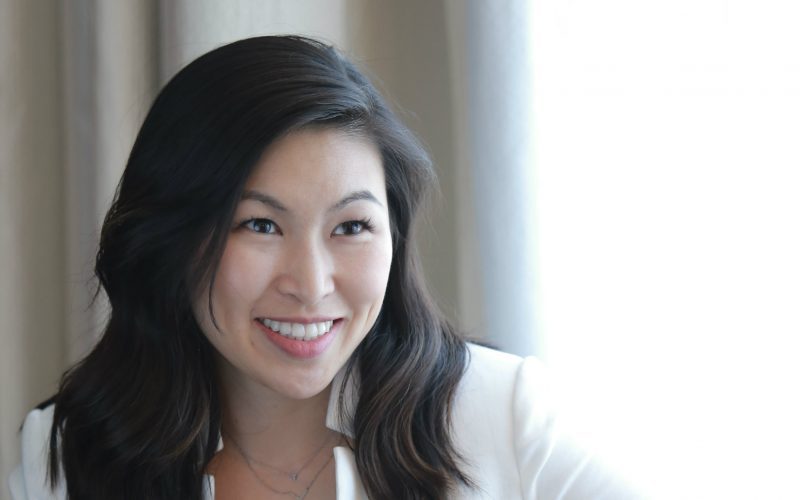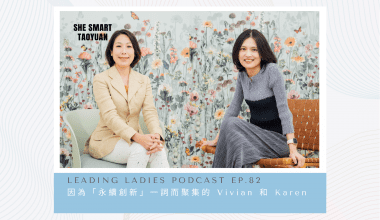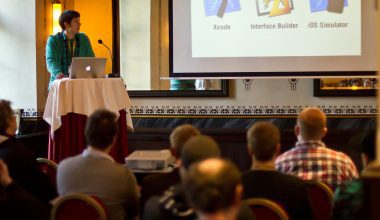編按:CAREhER 六月「行銷傳播」專題繼第一篇 語音對談 之後,這次邀請到 Uber 全球安全隱私總監 Dorothy。不同於公關和廣告業的溝通對象是企業和媒體,Dorothy 需要時常和政府部門溝通,需要具備的 knowledge 也就不一樣。同時在網路科技時代下,Dorothy 將會和我們分享網路如何影響人們生活,以及我們該怎麼準備好自己。
Tell us about your job, what exactly does a head of public policy for safety privacy and security person does?
So basically this means that every single day I am focused on predicting, preventing and reducing the number of incidents related to Uber, incidents and accidents, crashes related to Uber, and focusing on people’s safety literally from before the ride, before they even get to the car, how can we make every single ride more transparent, how can we make people feel we are holding them to account, to during the ride, GPS tracking, every single trip being able to offer the ability for you to share the entire route of your ride on a map in real time with your friends and your family, all the way to after the ride when you are able to provide feedback and ratings to our drivers. How do we use that information, how do we use that to predict and prevent more incidents and accidents from happening so if it’s all that combined, using technology to make travelling and ride safer than it hasn’t been before, before we have this technology, that’s what we are working on day to day.
Sounds like there is a lot of responsibility, everyone’s safety is in your hands.
Well it’s a team effort, I would say that. We have everything from data scientists all the way to people who are creating internal policies as well as people working actively with governments to advocate for safer practices and policies. I’ll give you an example, there are studies done by Temple University that show that when Uber is introduced into a market, specifically in California, DUI rates actually go down by 3.6 to 5.6%. So working with NGOs as well as government public officials to create public awareness, but also we have a lot of public partnerships with different cities to give people rides late at night…
When they are drunk?
I mean, we see basically on Friday and Saturday nights, that’s our rush hour, that’s when most people are taking rides or requesting rides and so we know that that’s really important for us, so it’s working on those types of things and that types of issues and advocating for public policies and working with government officials on solutions that actually predict then produce incidents rather than a lot of safety issues we have in the past which were more like guessing or saying this set of people can’t drive. It’s really trying to figure out what is statistically significant, what is the data that can show us what’s safer and really pushing policies towards that.
And do you notice that for the past 2 years, like young professionals they usually go drink on weekends and everyone takes Uber now.
Wow! Really!
Even in Taipei.
That’s amazing.Yeah, I guess it’s because more and more people are taking Uber and the hope is that we can recruit more drivers so that we can be able to meet that demand.
Are there any other, because this sounds like a very unique job, not every company has this type of job.
I would say that a lot of technology companies now have this role, and I play a similar role at Google and I covered similar topics at Dropbox. So you can see like the trends among like Google, Facebook, Airbnb, Dropbox. It’s all about how a new economy that’s powered by information and powered by technology can…what are their needs there and how do you help policymakers understand and come to a good outcome in terms of a lot of the policies they’ve created to regulate this company as well as how do you educate the consumers on how they can keep themselves safe and secure, what are the actions they can take and what are the things that Uber does to help them with that.
So it sounds like this will be an up-and-coming type of role on a global scale company that is focused on information and user data.
Can you take us back to your career trajectory, because you said you worked for Google and Dropbox for similar role so was like your major or something relevant to this area or how did you started all this?
Well I’ve always been really passionate since I was a kid about, I would say, human rights and social justice. So I actually majored in International Human Rights Ethics and Institutions and I went to Georgetown and I actually didn’t really understand the intersection of technology with these issues. When I was at Georgetown, I happened to get a really fortunate internship at Google right when I graduated so I was working with the Obama and McCain campaigns and the elections cycle, the first election cycle with Obama and working with their campaigns and getting them setup on Youtube, getting them to engage with their constituents on Youtube back when Youtube had a lot of cat videos. People weren’t taking the media that seriously, so we were really trying to change that perception and you have things like the Youtube debate for the first time and people interacting with their candidates for the first time online and so that’s what really got me drawn into the fact that well, technology can really change the way society operates, it can really change the way the democracy works, it can really enhance human rights and one of the things I got to work on at Google after the election cycle was the Google in China decision which was like a dream of mine in college. I would love to work on something like that. In that case we were talking a lot about what are the values of a company and how do we stand up for human rights activist and what does that mean for the company and how do we make decisions that will impact the business in a huge way but also can impact society in a huge way and really stand up for something different than the rest of the companies. What we thought was very consistent with the values of the company as well as what we believe the internet could do for the world as a whole was standing up for human rights and was standing up for people’s privacy and security, people’s freedom of expression.
So I think for us we look at this. People at that time ask us, is it just China? Everybody thought it was just China. We looked at it and we said no, we received requests to remove videos from Youtube, request to remove blogs, request to remove search results from everywhere…even the States.
All governments around the world, even the States, and access to people’s information as well. So what we decide was, what are the ways we can surface the level of privacy and security and freedom of expression online. Is there a way we can measure this? At that time there wasn’t a way to do that so we created the first transparency reports by Google and now over 60 companies all do this report but what it catalogs is the number of requests every half year that companies get to either censor information from their services or to hand over user’s information and we think it’s important to, for people to be able to see the facts and the laws of their country because if there is a democratic process then they can fight to change it. But if they don’t know the impact of the laws, then they cannot do anything about it. So there was that, and part of the report was also where are Google’s services blocked. So we saw for example in Egypt where the internet was shut down there’s a huge dip, and then in other some cases there are certain things you can’t see. We were trying to quantify surveillance and we knew that at one point Syria turned Youtube back on and it actually wasn’t because they wanted people to have Youtube, it was because they wanted to see who was watching which videos which was uploaded.
So they can go find them?
Exactly. So there is that huge intersection of privacy and security and freedom of speech online, enabling people’s ability to communicate and express themselves, and that’s what I found really interesting at Google and then the company grew a lot and I wanted a new challenge so I went over to Dropbox. I went from a team of several hundred to a team of like 5 or 6. So I miss that startup kind of feeling.
Did you adjust how you work with your team?
Oh it’s very different. You go from being a total specialist to being like, covering everything and it’s awesome because you get the chance to do things like help them launch all their international offices, to really define the core benefits of the product and you feel like you’re part of that founding team that really gets to establish the thing so I felt that it was an amazing experience and I was there for a year and a half but for me, what was most interesting about the internet and the web was its impact on society and its intersection with policy so I always wanted to go back to…
To talking to the government, like a bridge to the government.
Yeah and figuring out what positions to take that are good for the future of the internet, good for the future of the company, also for society. So my former executive at Google actually went to Uber while I was at Dropbox, and so she…
Headhunted you.
I had a lot of colleagues there which was like you should come over to Uber, we are doing lots of exciting things…
And you can get free rides.
Some of them. I think the reason I join Uber is because like Google, it had a similar opportunity to have an impact on the world and the way the world works and it’s not just the way people get from A to B, it’s the way people see flexible work and engage with that. It’s the way people…
There’s a lot of opportunities created just because of…
From like being able to get people to see carpooling as a reality for the first time, changing basically the way people commute, so that you can have more people and fewer cars, less cars on the road, better congestion, better for the environment. So there was a lot of draw there, the main project that they had me working on first was criminal justice reform.
Do you have any legal training, since you’re always interacting with policy and government and those are very tough areas and you might need to do a lot of research on the regulations in this area.
Is that something you have to do constantly to familiarize yourself with different governments?
You have to know the regulatory structures of all these different governments and cultures and fortunately. We have amazing teams on the ground to help me with that all the time but I think you have to understand not just the regulatory environment but also the local culture. At Uber you have to understand from a totally different way than other internet companies because you’re actually on the ground and people travel differently and in different countries and different places. In Vietnam for example we launched Uber Motor because it has one of the highest concentration of motorcycles in the world. So it doesn’t make sense for us to only launch a certain kind of product. And in certain countries they don’t use credit cards, they do use cash, so you have to adjust to the local environment. So you really have to immerse yourself in the political structures, the regulations in a place and why they are there, the culture. I think in the US what we have learned is that a lot of the transportation laws was written in the 30s and 40s when the country was very, very different. And then what happen was policing in the US has gone in a very certain direction. We all know that minority populations are disproportionately arrested, disproportionately affected by this sort of thing. And what we saw basically when we talk to minority groups and advocates was that people, if we follow the way the old laws went, people who were qualified to drive with Uber, qualified to earn a living with Uber might not be able to because they had some minor, non-violent convictions on their record. So for example resisting and abetting arrest, that’s what Garner was arrested for, so we started talking to more and more people and realising there is this fundamental justice issue going on especially for this types of easy earning opportunities. When there are licensing requirements that are restrictions that can force certain populations out disproportionately, and so many of our riders, drivers are from minority communities so for us it was a really big issue that we really wanted to advocate for and those opportunities are to be open to people who deserved them and needed them. So for me that was just an extension of what I have been doing my whole life.
This does sound like a dream come true.
Yeah so it’s been a really amazing job and you see this kind of dynamic all over the world. Households, their primary expense is usually their home. The secondary biggest expense is transportation. So you can make transportation safe, reliable, accessible and affordable, you can actually change the dynamic of a society very quickly, moving into underserved areas, places where taxis traditionally won’t go, places where public transport is really sparse. Even in Singapore where public transport is great, 30% of our rides start or end 200 metres away from a subway stop. So you really see us trying to integrate a city, bringing societies together, making it easy to get from places that might have been hard to travel before, may have been transportation deserts before. So it can be a really great equaliser and that is what we are really passionate about here.
Everything you have done is connected at this point, from your undergrad major, all the way to what you have done talking to the government, building experience.But what about for people who didn’t major, they didn’t go to DC and they didn’t have the opportunity to learn public policy etc.
What are the skill sets or is it something they can even develop themselves if they want to have a career like yours or work in a role like yours?
I think there’s a couple of things to focus on, first is your ability to communicate both in writing and verbally.
Especially when talking to governments, it is very different from talking to private entities.
I always tell folks if you’re going to work for an internet company it is important to understand how the internet works. To be able to communicate in a very simple way because fundamentally, internet companies are going to be regulative, we want them to be regulative very differently from previous industries. But to understand how to explain this to somebody else you have to understand yourself how the technology works. I didn’t have a scientific or technology background at all. Coming through school, my background is primarily in ethics and institution but you have to be willing to be very uncomfortable, learn some technical terms and just capitalise on your ability to explain very complex concepts very simply. That’s one of the keys. The other thing is, policy is fundamentally about structures and how institutions and structures can impact a society. If you understand how powerful institutions work and how they interact with each other and really how to influence political debates by demonstrating the value of a company to the society, that is when you can really be able to do this job and do it well. And you have to understand what these benefits are and how it affects people and get the right data sets to make the best arguments.
I think a lot of people might have been an academia. So for people that has been an academia had a lot of training and experience in public policy, how do they transfer themselves into a more ‘tech’ company? If they were familiar with the security side of those issues, it’s a pretty good start for them to actually implement this knowledge and to help all the tech companies.
I think the most important thing when you are transitioning from more of a studying role to more of a practical role is you have to understand the special interests that are at play. There is always an ideal academic way to construct policies around certain issues, but there are very practical concerns. For example, the officials in power may have certain interests at stake, they may also be aligned with certain companies, and you have to understand what are their interests are and why, and start to understand how that comes together. There is also the interest of the company that you are working at, and you have to know how to advocate for those and the stage of development your company is at definitely affects what you can do. For example, Google, by the time I joined they were no longer a start-up, they got their policies position and could fund the ability to do that. When you are at Uber you have to be a lot more scrappy because we are only 5 years old that means we have to be able to work in a much more heavily regulated environment. So it’s a different type of ballgame, you have to adjust and be flexible. I think at a high level outside of the skillset the biggest thing and what’s more important is being able to thrive in chaos. That’s really important for a tech company; everything is changing all the time and you have to be really comfortable with that. It’s going to be chaotic, everything’s going to be constantly changing and you have to create your own sense of structure, create your own sense of initiative and what you can take on and figure out in a very fluid environment how to get things done.
So we are going to finish this with 2 last questions. First one will be there’s a lot of interviews where Uber have identified that people who are most suitable to be working with Uber will be problem solvers, kind of like what you said about having to set up your own structure and all that.
So what are the personalities that you think will be suitable for Uber and secondly, what are other similar interesting unique job roles that are in Uber?
I don’t think there is any one silver bullet in terms of what kind of person we want to look for but I think we want to look for very diverse set of people. One of the things I think is most important about a team is that when you have a team that is able to have all different strengths and really harmonise their weaknesses so that the team as a whole is a lot stronger that’s what we are looking for. So we are looking for a lot of people that is spiked on different types of things, our team at the headquarters for example we have a data department that really works hard on making sure that we have the right numbers to improve our arguments. I think I will never do the job that they do but they are very important and then we have people who are issues experts and have worked on these issues for a very long time and understands the interest groups and the politicians who are really interested in these issues and how to work that arena. So that combination of like those two together is a much stronger team. So we are looking for all kinds of people with different strengths, I think the common denominator is that they have to be willing to – at Uber we call it hustle – and really get things done and really focus on getting quality results. But I think that you’ll find that as consistent as most companies.
We have a couple of really interesting roles; right now my team we are hiring for an expert in road and traffic safety, which is a huge opportunity for Uber. We are doing things like using the technology in the phone that’s already in your phone to detect if you’re holding the phone in your hand or if you have it in a stand to put on in a car to make everybody safer. We are doing things like using GPS and using accelerometers to detect harsh braking and acceleration rates and if you are above an average in a city, what that means if you get certain feedback from certain riders and what that means so that kind of role is really interesting and the best kind of person for that role is someone who has a background in road and traffic safety. That’s a really niche, unique role that’s really interesting and data sciences role is a team that’s fascinating, doing economic analysis on the impact of Uber on a city.
Lastly of course we have to ask as a female in startup, because it’s not really a very balanced number, any advantages or disadvantages?
I would say tech is a very male-dominated field mostly because most people coming out of the engineering field happen to be male. That’s something that companies like Uber and other companies are trying to change, trying to encourage more girls to computer science and engineering. But that’s not to say there aren’t other roles that women should be hired into, certainly I’m not technical and I would love to see that happening. I think Uber as a whole, my entire reporting chain up and down are all women, I have reported to women almost my whole life at least in some capacity like my boss’s boss or my direct boss has been a woman and I think it really makes an impact especially in meeting settings. I think what you see is that women being willing and able to take everybody’s interests account as a whole and really work at giving people what they need to succeed. This is over-generalizing but I think there are certain people, I won’t say male or female, but certain people who are managers who expect their teams to cater to them, like you cater to my needs and my expectations. But I think that the most successful managers are the ones who are actually able to cater to each of their reports unique needs and make them the best version of themselves that they can be to contribute to the rest of the company. So I think there can be so many benefits for having so many people with that kind of mind set, many of them are women in the room and also making big decisions for the company because I think women are just very generous, tend to be very selfless and team-oriented when they are in management and I think that’s a view and perspective that is very necessary in the company.
以下為中文逐字稿
Dorothy 目前的工作職稱為「全球安全、隱私與保安政策總監」,這在職場上非常少見。可以請妳跟我們分享妳的工作內容嗎?
基本上,我每天的例行公事就是預測、避免並降低 Uber 的事故發生量,並強調(focused on)乘車者的安全。在他們搭車之前,我們要思考:如何讓每一次的搭車資訊更透明化?例如:當乘車者在搭乘的時候,可以利用 GPS 定位追蹤功能與地圖,讓他們可以分享給朋友與家人完整的路程。在結束搭乘之後,可以給予回饋與評分給司機。而我們該如何利用那些乘車資訊去預測與避免更多的事故發生?因此當所有資訊結合時,我們就使用科技讓車程和車上的乘客一次比一次更安全。在我們還沒有這項技術之前,這工作是我們每天都在努力的事情。
聽起來這份工作承擔了很多責任,因為每個人的安全都在妳的手中。
其實這都是團隊的努力。我們擁有一切,從資料技術人員到內部政策人員,讓我們可以和政府有效地合作並協調出更安全的實施與政策。舉例來說,有一份來自美國天普大學(Temple University)的研究指出,當把 Uber 介紹給市場的時候,特別是在美國加州,酒醉駕駛(Driving under the influence, or DUI)比例下降至 3.6% 到 5.6% 之間。所以跟非政府組織、政府公開部門合作可以創造大眾的警覺性,而且我們也跟不同城市的公家機關合作,讓民眾可以夜間搭乘 Uber。
當他們喝醉的時候?
特別是週五和週六晚上,這是我們乘車的尖峰時間。所以實際上,我們在預測會發生的事故時,會致力於這類議題上,且提倡公共政策,與政府合作解決問題,並非如過去討論很多的安全性議題,去猜測哪些人不適合開車。而透過顯著的數據統計量,可以讓我們知道安全與政策推動的方向。
妳有注意到近兩年,有很多年輕人通常會在週末去喝一杯,然後結束之後就選擇搭乘 Uber 回家嗎?
哇,真的嗎?
特別是在台北。
太不可思議了!我猜這是因為有越來越多人搭 Uber 的關係。我也希望我們可以有能力招募更多司機去滿足市場的需求。
那麼除了上述內容之外,還有沒有其他的呢?因為這聽起來是個非常特別的工作,並非每個公司都有這個職務。
其實現在有很多科技公司有這項工作了。我過去在 Google 擔任過類似的職務,在 Dropbox 也曾經負責過類似的專案。所以妳可以把這個當作是科技公司的趨勢,例如:Google、Facebook、Airbnb、Dropbox 等等。這也說明了科技與資訊如何驅動新的經濟環境。公司的需求,以及妳如何幫助政府機構了解、如何有一個很好的營收,都是根據他們制定怎樣的規則去管理公司。就像妳要如何去教育消費者怎麼保障自身安全,也是根據消費者行為與我們 Uber 所提供的服務。
所以聽起來,在具有全球規模的公司內,這樣的職務將會是一個越來越重要的角色,且專於在資訊和使用者資料。
我們來談談妳的職涯規劃,妳曾經在 Google 和 Dropbox 負責過類似的工作。妳是如何接觸並進入這個領域的?
我從小就對人權和社會正義非常有熱忱。所以我在 Georgetown University 專攻國際人權倫理和機構,當時我還不知道科技與這類議題的關聯。很幸運地,我畢業的時候就得到了 Google 實習機會。當時,正值 Obama 和 McCain 的總統競選期,因此我就參與了競選宣傳活動。在第一波的競選期間,Obama 團隊成立官方帳號,將宣傳片放置在平台上,把他們的選民都帶回 Youtube 。那個時候,大家還沒有很認真地使用媒體,我們想試著改變這樣的狀況,所以我們就建立了第一個 Youtube 辯論平台。選民們可以在網路上發表言論、表達對他們所支持的候選人的看法。這也讓我發現一個事實是:原來科技真的能夠改變社交和民主運作,也能提升人權。選舉結束之後,我就正式進入 Google 工作。我決定到 Google 的中國辦事處工作,這是我大學時期的夢想之一,我也很喜歡去挑戰、嘗試做這樣的事情 。在這種時候,我們會去討論很多像是關於公司的價值是什麼?我們該如何支持人權活動?這活動對公司的意義是什麼?我們要怎麼影響商業與社會運作,支持不一樣的事情讓公司與眾不同?我們所思考的都是以公司的價值為出發點,我們也相信網路可以為整個世界做到支持人權跟人們隱私、安全和言論自由。
後來,我們收到移除 Youtube 影片的要求,移除部落格的要求,移除各國搜尋結果的要求,甚至是美國。所以我們決定做一件事情,有沒有什麼方法可以讓網友的隱私、安全和言論自由有標準出來?有沒有什麼權衡的方法?當時,沒有任何方式可以做到。所以我們決定創造 Google 的第一份透明度報告,至今已經有超過六十間公司做這樣的報告。編列的目錄為每半年的移除要求數,公司會進行審查流程並提交使用者的資料。我們認為對網友而言,可以了解實際狀況和國家法律是一件很重要的事。如果有個民主程序,人民就能去改變,但如果不清楚法律的影響力,那就無法做任何事情,導致 Google 服務被封鎖。
我在 Google 發現一件有趣的事情是網路會大量地讓人們的隱私、安全和言論自由產生交集,促使人們在平台上有能力去溝通與表達自己。之後 Google 也急速成長,但因為我想要有新的挑戰,於是到了 Dropbox。我從原本幾百人到只有五、六人的團隊,所以這也讓我滿想念新創團隊的感覺。
妳有調整自己的團隊合作方式嗎?
在新創團隊工作的感覺非常不同。從一個某領域的專才變成要去負責全方位的事情,這很棒!因為妳會獲得一些機會去做像是設立所有國際辦事處、建立產品的核心優勢等這類的事情,甚至會覺得自己是創業團隊成員之一。這對我來說,是一個非常特別的經驗。而我在那裡工作的一年半間,最感興趣的是網路科技對社會造成的影響和與政策之間的互相配合,所以我一直很想再擔任….。
和政府溝通,像是公司與政府的橋樑。
沒錯。也要去了解彼此的定位,讓網路、公司、社會的未來更好。我還在 Dropbox 工作的時候,我的前 Google 執行長剛好進了 Uber,所以她引薦了我。我有很多以前的同事在那,我們能一起在 Uber 做很多瘋狂的事。
還能免費乘車。
對,諸如此類。不過我會選擇加入 Uber 的主要原因是它擁有像 Google 一樣的機會去影響世界與世界運作的方式。它有能力讓人們看見電動車首次成真上路,到改變人們通勤的方式。妳可以擁有越來越多乘客、越來越少的汽車,減少道路車流量、壅塞問題,並美化環境。這其中有很多吸引人的地方,而我一開始主要負責的專案是犯罪正義改革。
這樣的工作是不是需要法律相關的背景呢?因為妳必須要和政策、政府相處工作,而且這個領域非常艱澀,妳可能需要大量地研究相關法令。有沒有什麼事情是妳需要不斷地去熟悉、理解的?
需要去了解的是不同政府與文化的規範結構,而幸好我們公司有很厲害的團隊可以幫我。但我想不只是要了解法律環境,還要知道當地文化。比起其他網路公司,在 Uber,妳必須用不同的方式去了解這些,因為妳站在不一樣的土地上,而每個人旅行的方式也不一樣。
比如,我們在越南建立了 Uber 摩托車,因為它是全世界擁有摩托車密度最高的國家之一。所以我們不能只提供一種服務。像是有些國家不使用信用卡,他們多半用現金付費,所以妳得調整營運模式去符合當地環境。因此,妳需要深入了解當地的政治結構、法律規範與當地文化。在美國,我們已經知道有很多交通法規是在 1930-1940 年代間撰寫而成的,但那期間的美國和現在已經不一樣。後來,美國發生政治動亂,我們都知道少數族群被不合理的逮捕。因此,我們覺得要有非暴力的信念與無犯罪紀錄才能夠勝任 Uber 的司機。我們開始與越來越多人談合作,也開始實踐基本的正義議題,尤其是這種簡單的營運模式。當有對特定族群限制的駕照許可令時,對我們來說就是一個很大的正義議題,我們就會想辦法去宣導並為這些非多數族群的人創造機會,還給他們所該擁有的權力。這對我來說,這就是我人生想一直做的事情。
妳的夢想成真了!
對!這對我來說是個非常棒的一份工作,我也從一些地方看到改變。對家庭來說,主要的費用當然是家中花費,第二大的花費就是交通費用了,所以透過利用安全性、可靠性、便利性、價格優惠,你真的能夠見到社會快速得改變,進入交通不便利的領域和車輛部會行駛的地方。在新加坡的公共運輸就是非常優秀的,有 30% 的駕駛開到距離地鐵出口步道 200 米的位置,所以妳能夠見到我們嘗試去整合一座城市,讓人們更能緊密地生活、更簡單地到以往不方便到達的地方旅行,在其中取得完美的均衡,這也是為什麼我們總是對這件事情這麼地充滿熱情。
所以,所有妳做過的事情都是緊緊相連的,從大學主修的專業、與政府溝通的能力到工作經驗的累積。
對於非相關領域出身的人而言,甚至他們沒去過 DC 也沒有學過公共政策等等,但想往這方面發展。有沒有什麼方法能夠讓人才可以發展與培養相關能力呢?
我想有非常多的方法。首先,要培養妳的寫作與口語表達能力。
尤其,跟政府、私人企業溝通是完全不一樣的事情。
我常常告訴別人說,如果妳想要在網路公司工作,那了解網路如何運作是很重要的。為了能夠用簡單的方式溝通,網路公司要合乎法規,這跟以往企業是不一樣的。妳自身要對科技工作要了解才能去解釋給其他人聽。我完全沒有科學和科技的背景,所以我透過學校,比如;我主要修的是道德還有制度,學習一些技術術語跟加強簡化複雜概念的能力。如果妳了解比較有規模的機構,以及它們如何通過展示公司的價值去跟社會政治辯論互動,那麼妳在這領域會做得不錯。妳也要了解網路帶來的效益、它怎麼影響人們和怎麼利用正確的資料做出好的決策。
想問兩個問題:第一是妳認為什麼樣的人格特質適合在 Uber 工作呢?第二個問題是,在 Uber 是否有其他特別或有趣的職位?
我不認為我們一定要某些特定人格特質的人,我們要找的是具多樣化的人。團隊裡最重要的是每個人都有不同的優點以彌補各自的缺點,這能讓整個團隊變得更加強大,因此我們所找的人是觸及各領域的。以我們團隊為例,我們有一位重要而且辛苦的資料分析人才來強化我們的數據和決策。我覺得自己永遠不可能從事那樣的角色,但他們對於解決問題絕對是重要的,他們花了大量時間和了解對 Uber 感興趣的族群跟政黨的運作,這樣的結合才是更強的團隊。所以我們要找的是具有不同優勢的人才,當然他們也要樂意再 Uber 才行。在 Uber ,完成事情並且專注在取得有價值的結果時,我們稱為 hustle,妳也能找到非常多公司是這樣的。
我們有一些真的挺有趣的工作,像是在我們團隊裡有雇用一位交通安全跟道路安全的專家。Uber 做了很多事,像是使用手機科技去偵測你把手機拿在手上或是放在車裡,這樣的科技能確保周圍每個人的安全。又或是,當妳超過限定車速,我們會用手機偵測刺耳的剎車聲,這需要擁有道路安全的學歷背景的人才。資料科學研究者在團隊裡也是不可或缺的,他們掌握了 Uber 在城市裡的造成的經濟分析。
最後,我想問的是,因為在新創團隊的男女比例好像不是那麼均衡。對妳來說,有什麼優缺點嗎?
目前科技業還是以男性主導的領域,因為大部分的工程領域還是男性居多。像 Uber 及其他公司都想嘗試改變這件事,它們鼓勵非常多女生去計算科學還有工程學。
不能說女性不適合擔任其他職位,像我就不是專業技術人員,而我非常樂意看到這件事發生。我的上司下屬就全是女性,在我的人生經驗裡,我的直屬長官或是老闆一定有一位是女性,而且我認為這樣的改變甚至能影響會議進行的方式。我認為,女性會成功的原因是因為,女性比較願意接納每個人觀點,同時回饋給人們期望的。我不會說是男性或女性,但一些管理階層,都期望去團隊去迎合他們,像是妳必須配合我的需求和我的期望。不過,我認為大部分成功的管理者都是能去接納不同觀點,讓團隊展項出更好的一面,這當然也有助於公司。所以擁有不同思維的人才對公司來說,是非常有益的,許多女性也為公司做出重大的決策。我覺得女性在擔任管理者時是非常慷慨,而且以團隊為導向,這樣的觀點跟概念需要被公司重視。












